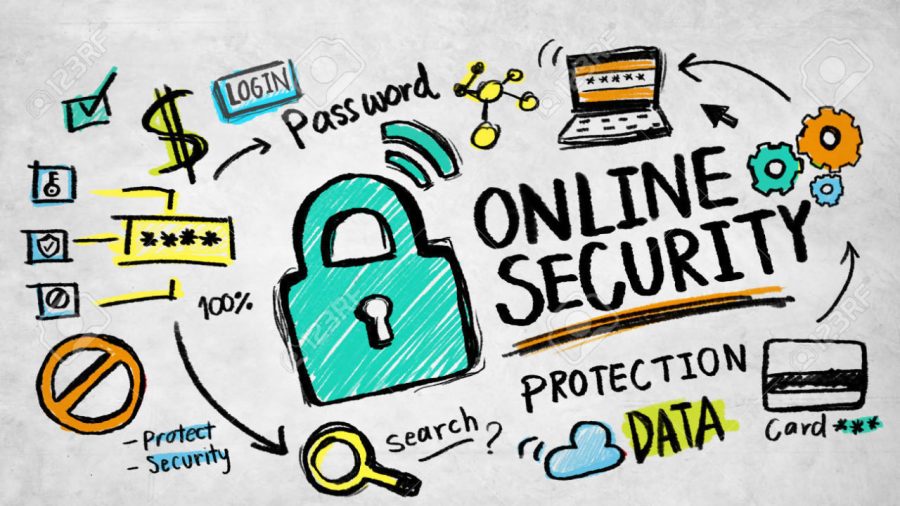Ways to Stay Safe on the Internet
The internet is used in many ways, both for fun or for serious things. People use it to shop online, communicate with their friends or family, do online school, play video games, and more. Especially since quarantine started and COVID-19 became a bigger issue, people have been going online a lot more frequently. Cyber safety is very important because some hackers have ways to find people’s personal information. Preventing people from finding this type of information is easily avoidable as long as you take the right precautions.
Due to quarantine, many people have been nervous to go shop at stores in person, so they have shifted to shopping online. First off, according to lifelock.com, if you’re shopping online it’s suggested that you are not using public wifi. For example, if you’re at a store, airport, restaurant, etc. This is because shopping online requires you to give out personal information such as your name, address, or a credit/debit card number. It’s very easy for cybercriminals to look for your information on public wifi. However, if you absolutely need to use public wifi, then protect yourself with a VPN (virtual private network). A VPN creates an encrypted tunnel between your device and the server. You can download a VPN for free on your laptop or smartphone. Using a VPN is the only way to shop online safely while using public wifi, as cybercriminals nearby would not be able to see what you’re doing. Also, according to lifelock.com, while shopping online it is suggested that you use a credit card instead of a debit card to pay for your purchases. A credit card does not give a seller direct access to money in your bank, and most credit card companies offer $0 liability for fraud. This means that you aren’t losing any money if someone uses your credit card to buy something. Your credit card company will ask you questions and investigate the fraudulent activity. One last thing that you should check for while shopping online is the site security. First, look for a lock icon in the browser bar to confirm that your information is private and that your connection is secure. You also should check the URL to make sure that it starts with “https” instead of “http”. The “s” at the end means secure.
According to dictionary.com, phishing is the practice of using fraudulent emails and copies of legitimate websites to extract financial data from computer users for purposes of identity theft. For example, you may receive an email from someone telling you about a sale happening on a shopping website that looks real, but they could be giving you a link to an unsecure website, or a website that does not relate to a “safe” they are giving you. They also could be sending you links to attachments to files that could infect your device with viruses or other malware. In order to know if someone is phishing you, check the name of the email or the email itself. Usually the name would be a bunch of random letters. They also may tell you that you have won something, or the website URL just does not look right. On another note, random people on social media or on emails may send you a link to a website that looks odd. Be sure to check the link to see if it’s secure and that it does not look suspicious. Personally I have experienced friends on social media getting hacked because they clicked on links random people sent them.
Some basic things while being online, according to mcafee.com, is to set strong passwords, keep your devices up to date, and be a selective sharer. When setting a password, you should make it long and unique so that it is harder for other people to guess. You also should use different passwords for everything and not use the same ones. This is because if someone knows your password to one account on a website, then they could potentially log into something else on a different website if you use the same password for them both. Keep your devices up to date as well, meaning that you should do any updates frequently so you have the latest security patches. Lastly, be a selective sharer. These days there are a lot of opportunities to share personal information online. Be cautious about what information you share to certain people. People could use personal information to impersonate you or guess your passwords/logins.
Online safety is extremely important, so be aware of the type of things that people are able to do. Especially as a student and going online more due to school, it is always good to watch out for all sorts of things that could potentially harm you. Make sure that your school email and any other accounts you may have has a password that is unique and hard to guess. I hope everyone is able to stay safe and that you all take the right precautions.





